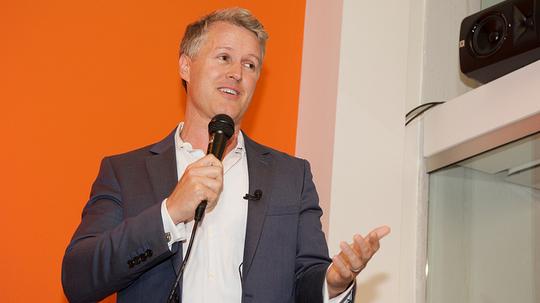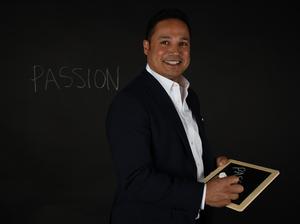
D.C. ed-tech firm EverFi Inc. will hold onto much of its independence after its $750 million sale last week to Blackbaud Inc., maintaining its brand and its local headquarters, an EverFi executive told the Washington Business Journal.
EverFi will operate as a separate division within the Charleston, South Carolina, cloud software company, said Chief Operating Officer Ellen Patterson. EverFi's core business is providing a range of skills training, from mental health and wellness to digital literacy and financial education, to K-12 students, as well as training sessions to corporations, including in harassment and discrimination.
Now with its change in ownership, there are no big office or leadership moves planned, Patterson said. The company will maintain its 58,000-square-foot headquarters at 2300 N St. NW, and EverFi’s current executive team, including CEO Tom Davidson and presidents and co-founders Ray Martinez and Jon Chapman, will stay on board.
EverFi is growing, however. The company is looking to fill around 50 mostly new positions, ranging from engineering to product to revenue and marketing roles. Those jobs won’t necessarily be located in D.C. — EverFi has employees based out of offices in D.C. and the United Kingdom, and about half of its roughly 500 employees are permanently remote.
About 200 of those employees call the D.C. region home, Patterson said, and new hires will have flexibility as to where they are based.
EverFi had begun bringing people back into offices toward the end of 2021, but then shifted staff back to completely remote due to Covid-19, Patterson said — though, that may not be for long. “Before the holidays, we saw great strides in bringing people back into the office,” she said. “With Omicron, we’re currently all remote, but we plan to open the offices back up in the next two weeks.”
No matter where they're working, those existing employees and future hires will be tasked with helping Blackbaud (NASDAQ: BLKB) reach “aggressive” profitability targets, the COO said.
“There was a business case behind [the purchase],” Patterson said. “The growth and trajectory of EverFi was attractive to [Blackbaud]. And part of that was the business plan that we had, the operating plan that we had in place for 2022 and beyond and the team to make that happen.”
In 2022, the deal is expected to add $120 million in revenue to Blackbaud, which had counted $913 million in total 2020 revenue and nearly $680 million in the first nine months of last year. In early 2021, Martinez told the Washington Business Journal that EverFi’s revenue had topped the $100 million it earned in 2019. Patterson declined to share further revenue figures.
She said the combination with Blackbaud, whose software for fundraising, grant and award management, and payment processing is sold to nonprofits, foundations and other social impact organizations, puts EverFi in a new sphere. It also gives Blackbaud access to EverFi's list of K-12 schools and other enterprise clients, as well as a growing workplace culture unit that provides software to measure a company's progress on goals such as "giving back to their communities" and employee education, Patterson said.
“To my knowledge, there are no players that are doing what we’re doing yet,” she said, citing competitors who offer individual aspects of Blackbaud’s business. “The piecing together of a holistic solution isn’t out there in the market yet.”
The ed-tech space has seen a fair amount of consolidation of late, with Lanham’s 2U Inc. (NASDAQ: TWOU) acquiring most of online course provider edX’s assets in an $800 million deal last fall and Clarendon’s Symplicity Corp. buying Canadian ed-tech company Orbis Communications.
In another high-profile industry combination, Reston’s Blackboard Inc. sold to Florida-based Anthology for undisclosed terms last October, resulting in a combined company that has assumed Anthology's name, its Boca Raton headquarters and its CEO, Jim Milton, as its chief executive and chairman. Anthology, which said it will continue to operate the Blackboard brand name and the latter's Reston office, still remains majority-owned by private equity firm Veritas Capital. Its other majority owner before the deal, Leeds Equity Partners, now holds a minority stake, as does Providence Equity Partners LLC, which was Blackboard's majority owner.
Anthology has since brought on a handful of Blackboard leaders to its own ranks, including now-Chief People Officer Denise Haselhorst and Chief Legal Officer Stuart Kupinsky, as well as former Blackboard Chief Client Officer Lee Blakemore to preside over its K-12 community engagement and former Chief Administrative Officer Tim Atkins to head up the integration process. Former Blackboard CEO Bill Ballhaus, slated to retain an investment stake in the larger company, has since formed his own Northern Virginia firm, MilestoneRoad Holdings LLC, according to his LinkedIn profile.



